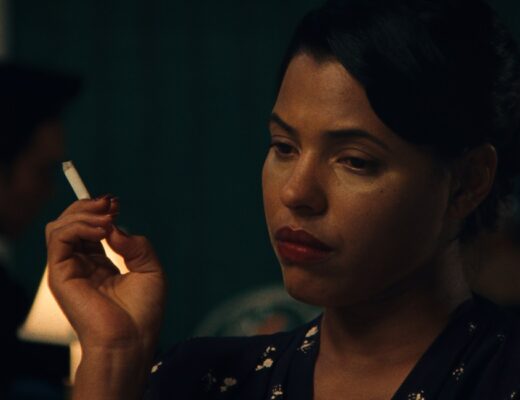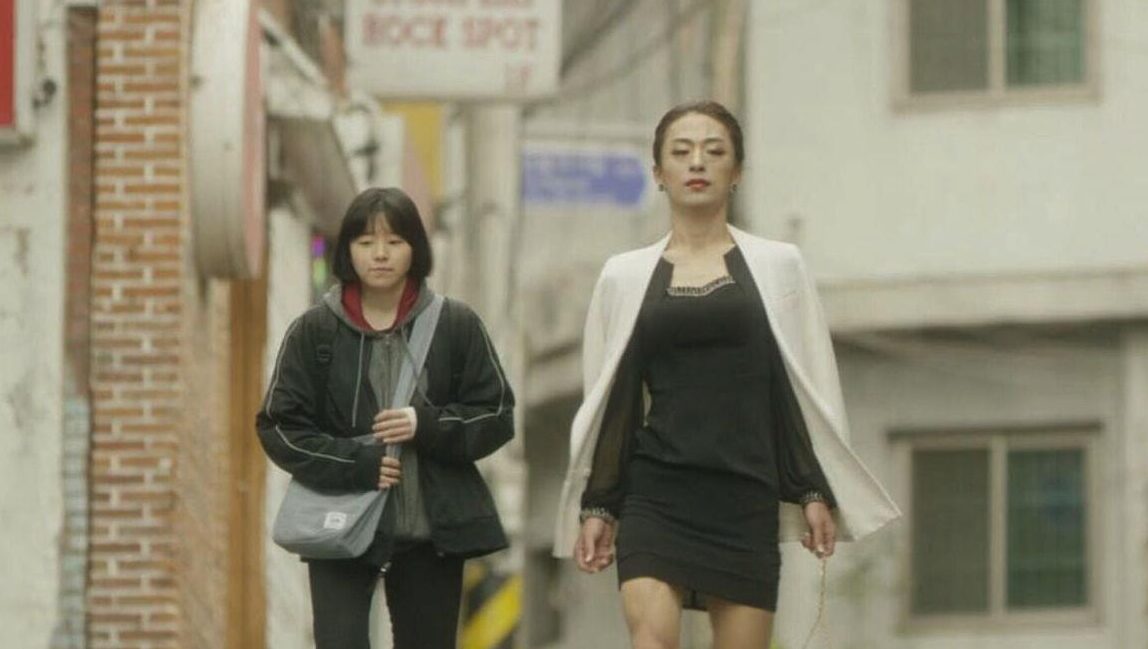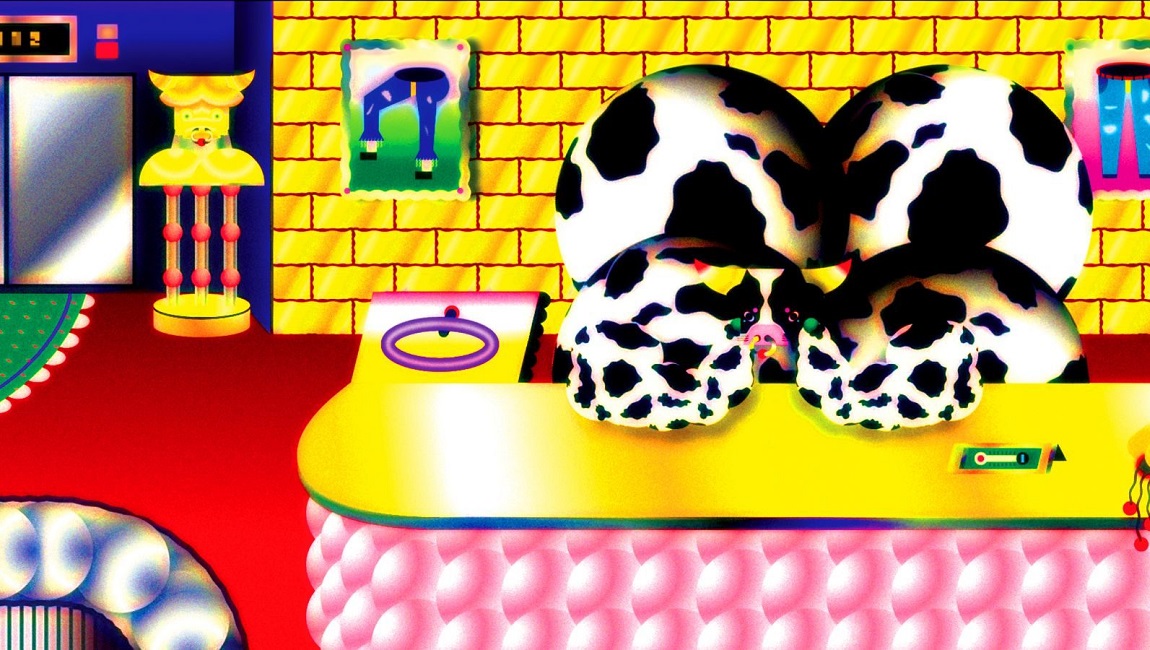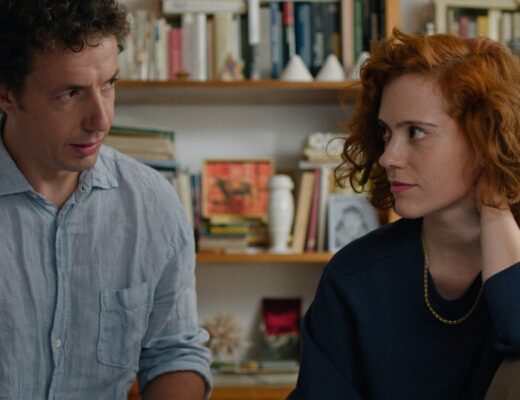Chained for Life opens with a quote from Pauline Kael: “Actors and actresses are usually more beautiful than ordinary people. And why not?” Director Aaron Schimberg’s invocation of this quote immediately establishes his film’s broad thematic palette, but it also reflects its ironic sense of humor. Unfolding around an exploitation film production replete with a Naziistic caricature of a director and which depicts the familiar tale of a blind woman who learns to love a deformed man, Chained for Life’s central leitmotif addresses the relationship between interior/exterior beauty and ugliness. An early interview scene with the actors finds them confronted directly with their film’s exploitation of physically deformed people, a move which simultaneously draws attention to the film’s meta nature and those implications while also critiquing its beautiful stars for their own vapidity.
The opaqueness of this narrative structure allows for the film to play with various dichotomies: it dresses itself as both modern and classical, obfuscates the line between the reality of its thematic concerns and the fiction being spun at its center, and finds humor in the pretensions of what is “normal” versus the characters that are being exploited in-film. Interestingly, Schimberg allows this progression to lead to an unexpected place: in highlighting the humanity of characters who are often misrepresented and relegated to roles predicated on their abnormalities, he circles back to ask if beauty is not also exploited for cinematic effect? The result of all this can feel muddled and unformed, but Schimberg is starting a conversation about the role of physical appearances in media that’s worth having.
Published as part of September 2019’s Before We Vanish.







